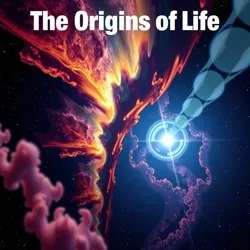The Origins of Life: Cosmic Beginnings
The origins of life on Earth have long been a subject of curiosity and debate among scientists. The theory of "Cosmic Beginnings" posits that life's building blocks were formed in space and delivered to Earth via comets, asteroids, and interstellar dust. This theory is an intriguing facet of astrobiology and challenges the more terrestrial-centered explanations for life's inception.
Cosmic Building Blocks
The concept of Cosmic Building Blocks suggests that essential organic compounds, such as amino acids and nucleotides, could have formed in the interstellar medium. The discovery of complex organic molecules in the tails of comets and in meteorites that have collided with Earth supports this theory. These findings indicate that the ingredients necessary for life could be widespread throughout the universe, potentially leading to the origins of life on other planets as well.

An artist's depiction of a cosmic nebula, where organic molecules might form.
Delivery to Earth
The delivery mechanism, according to the Cosmic Beginnings hypothesis, involves the transportation of these organic compounds to Earth via celestial bodies. During the early formation of the solar system, frequent collisions with asteroids and comets could have deposited these molecules onto the primordial Earth, providing the raw materials for the emergence of life. This process is known as Panspermia, which suggests that life, or at least its precursors, may have an extraterrestrial origin.
The Role of Interstellar Dust
Interstellar dust, composed of tiny grains of carbon and silicates, is another potential medium for the transit of life's building blocks. These microscopic particles can travel vast distances across the galaxy, carrying with them complex molecules formed in the cold depths of space. The Interstellar Dust Theory posits that these grains could have settled on early Earth, contributing to the chemical soup from which life emerged.
Implications for Exobiology
If life on Earth originated from cosmic sources, it implies that life might be more common in the universe than previously thought. The study of extreme environments on Earth, such as hydrothermal vents and acidic lakes, shows that life can thrive in conditions once considered inhospitable. This has led to the hypothesis that similar life forms could exist on planets or moons with extreme conditions, such as Europa, one of Jupiter's moons.
Challenges to the Theory
While the Cosmic Beginnings theory is compelling, it faces several challenges. One such challenge is explaining how complex organic molecules could survive the harsh conditions of space travel and the intense heat of atmospheric entry. Additionally, the theory must contend with the alternative hypothesis that life originated independently on Earth, without cosmic intervention.
See Also
- Panspermia
- Interstellar Dust Theory
- Europa: A Potential Habitat
References
While the Cosmic Beginnings theory is still a topic of active research, ongoing studies in astrobiology, chemistry, and astronomy continue to shed light on the fascinating possibilities of life's cosmic origins.